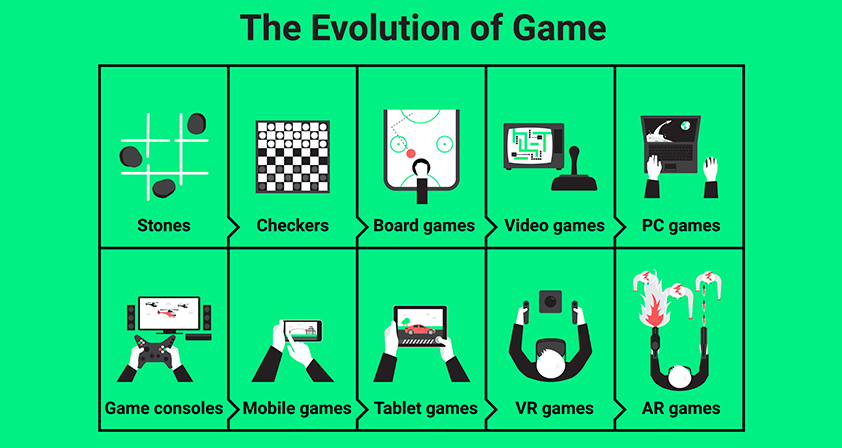The Evolution of Free-to-Play Gaming: A Glimpse into the Future of PC Gaming in 2025
Related Articles: The Evolution of Free-to-Play Gaming: A Glimpse into the Future of PC Gaming in 2025
Introduction
With enthusiasm, let’s navigate through the intriguing topic related to The Evolution of Free-to-Play Gaming: A Glimpse into the Future of PC Gaming in 2025. Let’s weave interesting information and offer fresh perspectives to the readers.
Table of Content
The Evolution of Free-to-Play Gaming: A Glimpse into the Future of PC Gaming in 2025

The landscape of PC gaming is constantly evolving, with the rise of free-to-play (F2P) models significantly impacting the industry. By 2025, the availability of a vast library of free games will likely be a defining characteristic of the PC gaming experience, offering players unprecedented access to diverse genres and experiences. This article explores the potential landscape of F2P gaming in 2025, examining its impact on the industry, the opportunities it presents, and the challenges it may face.
The Rise of Free-to-Play:
The F2P model has become increasingly popular in recent years, driven by its accessibility and potential for monetization. Developers have realized that offering a core game experience for free can attract a wider audience, generating revenue through in-game purchases, subscriptions, or advertising. This model has proven successful across various genres, from massively multiplayer online role-playing games (MMORPGs) to mobile games.
The Future of Free-to-Play in 2025:
By 2025, the F2P model is projected to become even more prevalent in the PC gaming space. Several factors contribute to this prediction:
- Increased Competition: The growing number of developers entering the market will intensify competition, pushing them to adopt F2P models to stand out and attract players.
- Technological Advancements: Advancements in cloud gaming and streaming technologies will further enhance the accessibility of F2P games, allowing players to enjoy them on various devices without significant hardware requirements.
- Evolving Consumer Preferences: Players are increasingly accustomed to free-to-play experiences, making them more receptive to this model.
Benefits of Free-to-Play Games:
The widespread adoption of F2P games brings numerous benefits to players and the industry:
- Accessibility: F2P games remove financial barriers to entry, allowing players to experience a wide range of games without upfront costs.
- Exploration and Discovery: Players can easily try out different genres and games without committing to a purchase, fostering exploration and discovery within the gaming landscape.
- Community Building: F2P games often have large player bases, facilitating community building and fostering social interaction among players.
- Innovation and Experimentation: The F2P model allows developers to experiment with new game mechanics and monetization strategies, leading to innovation and pushing the boundaries of the gaming experience.
Challenges of Free-to-Play Games:
While F2P games offer numerous advantages, they also present challenges:
- Monetization Strategies: Developers must carefully balance monetization strategies to generate revenue without alienating players through excessive in-game purchases or intrusive advertising.
- Player Retention: Retaining players in a free-to-play environment can be challenging, requiring developers to continuously update content and engage players to prevent them from moving on to other games.
- Fair Play and Balance: Ensuring a fair and balanced gameplay experience is crucial in F2P games, as players who spend money should not have an unfair advantage over those who do not.
- Potential for Exploitation: The F2P model can be susceptible to exploitation, with some developers employing predatory tactics to encourage excessive spending by players.
The Future of Free-to-Play: A Balanced Ecosystem:
The future of F2P gaming in 2025 will likely involve a balanced ecosystem where developers strive to create engaging and rewarding experiences while maintaining a sustainable business model. This will require a focus on:
- High-Quality Gameplay: F2P games must offer engaging gameplay mechanics, compelling stories, and polished graphics to attract and retain players.
- Transparent Monetization: Developers should clearly communicate their monetization strategies and ensure that in-game purchases are optional and do not affect the core gameplay experience.
- Community Engagement: Building a strong community around F2P games is crucial for fostering player loyalty and providing a sense of belonging.
- Continuous Updates and Content: Regularly updating games with new content, features, and events is essential to keep players engaged and prevent them from losing interest.
Frequently Asked Questions:
Q: Will all games be free-to-play in 2025?
A: While the F2P model will likely become more prevalent, it is unlikely that all games will adopt this model. Traditional paid games will continue to exist, catering to players who prefer a premium experience or are willing to pay for a complete game upfront.
Q: How will free-to-play games be funded?
A: F2P games are typically funded through various monetization strategies, including:
- In-game purchases: Players can purchase virtual items, currency, or cosmetic enhancements.
- Subscriptions: Players can subscribe to premium features, access to exclusive content, or other benefits.
- Advertising: Games may display ads to generate revenue.
Q: Will free-to-play games be less polished or have fewer features than paid games?
A: The quality of F2P games can vary significantly. While some may offer a limited experience, many F2P games are developed with high production values and offer engaging gameplay and features comparable to paid games.
Q: Are free-to-play games fair for all players?
A: Ensuring fairness in F2P games is a crucial aspect of their design. Developers must carefully balance monetization strategies to prevent players who spend money from having an unfair advantage over those who do not.
Tips for Playing Free-to-Play Games:
- Research and choose games carefully: Before committing to a F2P game, research its monetization model, gameplay, and community.
- Set a budget: If you choose to make in-game purchases, set a budget and stick to it.
- Focus on the core gameplay: Do not feel pressured to spend money to enjoy the game. Many F2P games offer a rewarding experience without requiring in-game purchases.
- Engage with the community: Participate in forums, discord servers, or other communities to connect with other players and learn tips and tricks.
Conclusion:
The evolution of free-to-play gaming is shaping the future of PC gaming. By 2025, a vast library of free games will likely be available, offering players unprecedented access to diverse experiences. While the F2P model presents challenges, its potential for innovation, accessibility, and community building makes it a powerful force in the gaming industry. By focusing on high-quality gameplay, transparent monetization, and community engagement, developers can create a balanced ecosystem where F2P games thrive and provide players with rewarding and enjoyable experiences.







![The Evolution of Gaming [Infographic] - ChurchMag](https://churchm.ag/wp-content/uploads/2010/11/the-evolution-of-gaming.jpg)
Closure
Thus, we hope this article has provided valuable insights into The Evolution of Free-to-Play Gaming: A Glimpse into the Future of PC Gaming in 2025. We thank you for taking the time to read this article. See you in our next article!